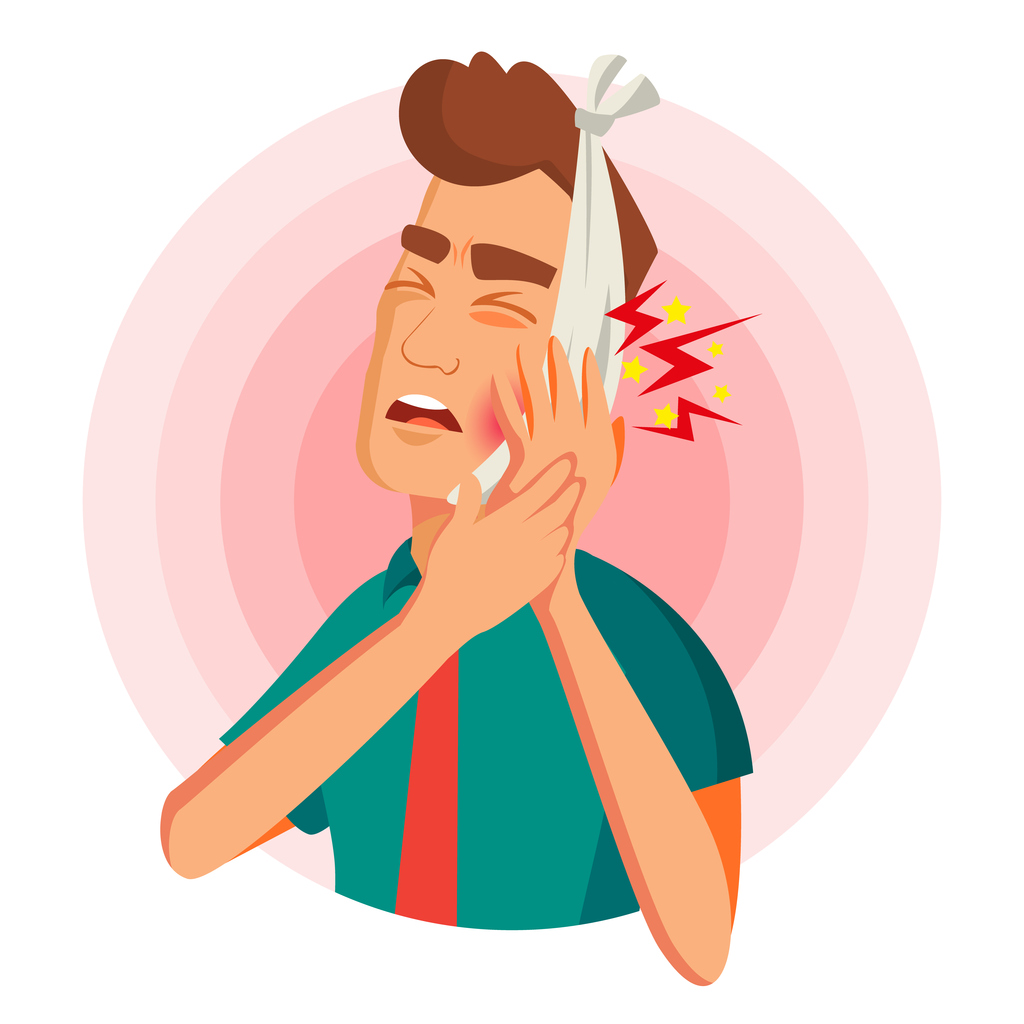TMJ Treatment for Singers— Get Help Here Now!*
Do you ever suffer with jaw pain? Is it hard to open your mouth all the way, or does your jaw pop or crack when you do? Have you ever had a spasm in the jaw while trying to eat or drink, or sing? If so, READ ON! You may have TMJ dysfunction, and it requires treatment, not only because it can affect your singing, but because it can impact other aspects of your health as well…
Two things happened this week that put me in mind of jaw problems for singers. The first was that I took a very bad fall and slammed my right side, including my jaw, into some furniture in my bedroom. Major ouch! My jaw is still a bit swollen, even a week later. The second incident of jaw pain came up in my college voice class, where one of my students expressed concern over suffering with TMJ (temporo mandibular joint dysfunction), and was worried about its effects on her singing. Let’s take a look at what TMJ is, and what you can do to prevent and treat it…
The temporo mandibular joint is an intricate one, that moves both horizontally and vertically, and is located at the base of the skull. The abbreviation of the name is the TMJ, and it allows for the movement required for chewing, talking— and singing! The joint connects the mandible, which is the lower jaw, and the temporal bone, which is on the side of the skull. Due to its multiple range of motions, it is one of the most complex joints in the body, which can make TMJ disorders more challenging to treat.
Pain and restricted jaw movement are the two most common symptoms of TMJ, but it can be caused by more than a few issues. The most common include: an injury, like my fall earlier this week, grinding your teeth (bruxism) at night or clenching the jaw (something I know all too well), or inflammatory issues in the body, such as arthritis. Like other health problems, there can be additional causes as well, such as the result of repetitive motion or environment (sleeping in a wrong position, for example). For singers, constant movement of the jaw while singing may inflame or exacerbate the TMJ. And, women tend to experience TMJ issues more often than men, and younger people more often than older adults. But, anyone can have TMJ issues at any time!
So, what can you, the concerned singer, do for TMJ treatment?
Here are some practical tips to help you overcome the debilitating effects of TMJ:
- See your dentist! (or, preferably, one who specializes in TMJ issues, if yours does not). TMJ can be helped by a little in-office filing of some teeth, to make your bite more even, and thereby relieve uneven pressure on the jaw joints. If the misalignment of teeth and/or bite is more severe, you may need to wear braces, or at least a retainer for awhile. In rare extreme cases, jaw surgery could be required. If the problem is not so much one of alignment, it could be bruxism (teeth grinding) or clenching of the jaw that is causing the TMJ problem. In that case, your dentist can make you a custom night guard to wear in your mouth, which may reduce your biting and can help save your teeth and gums, in addition to helping your jaw joint pain.
- Switch to soft foods. When you’re having episodes of TMJ, skip hard or sticky foods that require lots of chewing. This tires your jaw muscles and can heighten jaw pain and inflammation. Don’t chew gum!
- Apply a warm compress. Wet some washcloths and heat them GENTLY in the microwave, or under the hot water faucet. Be careful! Then apply to the affected jaw(s). The warm, moist heat will penetrate, drawing blood into the area, which facilitates healing. It will help tight and spasming jaw muscles to relax. Try 5 minutes at a time, repeating at least every half hour, or as needed.
- Massage gently. Carefully rub the jaw area behind your back molars, and then work up to your temples (the temporalis muscles), which are connected to the jaw. Then come down in front of the ear to massage the masseter muscles. A minute or two of soothing massage can release the muscle tension that is giving you pain.
- NSAIDs. IF YOU ARE NOT SINGING THAT DAY (see my post: Headache Relief That’s Safe for Singers* taking aspirin, ibuprofen, motrin or naproxen can help reduce pain and muscle inflammation. Follow the instructions on the label— usually one every 6 hours.*
- Avoid neck strain. Try not to hold the phone between your neck and shoulder, and don’t hunch over to look at your phone or tablet. The adult head weighs about 10 pounds, so bad posture puts quite a strain on the neck, and that can travel to your jaw. Be sure to place your computer high enough to keep you at eye level.
- Practice the “Duh” position. We use this in teaching voice all the time! Pretend you are the dumbest person in the world, and say “Duh”, letting your jaw fall open naturally, without force. Cultivate this as your normal position when you are driving, doing the dishes, watching TV, and before you go to bed. This will retrain your jaw to have relaxation as its default position, rather than clenching. You will be amazed at how much it helps your singing as well!
- Take Magnesium. Especially before you go to bed. This relieves tension in the body and will reduce or eliminate your clenching and teeth grinding, especially at night. Doctors recommend 200 mg to start, and then work up to 400 mg. But check with your dentist or doctor for the specific dose that will be right for you, as well as your pharmacist, to make sure there will be no interaction with other medications you may be taking.
- Ice Packs. While moist heat can relax muscles and bring healing blood to the area, when the pain is very bad and the inflammation is at a high level, there’s nothing like an ice pack to numb the pain and reduce that throbbing sensation. Just make sure you put a thin cloth between your skin and the ice pack, and use it only for 5-10 minutes at a time, every half hour or so. You don’t want to get an ice burn!
- Healing Supplements. There are so many natural and even homeopathic supplements on the market to aid in the treatment of joint pain, some of which are targeted specifically for TMJ. My best advice— check with your doctor or naturopath as to what has a proven track record for effectiveness, and safety.
- Jaw and Neck Exercises. Very gentle yawning, neck stretches, jaw stretches and the like can be extremely helpful aids in reducing the discomfort of TMJ. But— NEVER force your muscles in any direction! Always go gently and “allow”, rather than “make” a muscle move. Yoga, deep breathing, and guided meditation are all great ways to get in some stress reduction and TMJ treatment at the same time…
As singers, we have to be extra-careful of our bodies and our overall health, if we want to sing well and perform dynamically. A problem like TMJ can definitely get in the way, and can not only interfere directly with singing, but can cause peripheral problems such as frequent headaches or dental discomfort. You don’t want to miss a rehearsal, recording session, performance, class or lesson because of TMJ-related issues. With the tips above and the help of a good dentist or doctor, TMJ treatment is on its way. You can stop TMJ in its tracks, before it stops you!
*THIS POST IS PRESENTED FOR INFORMATIONAL PURPOSES ONLY. ALWAYS CHECK WITH YOUR DENTIST, DOCTOR, AND/OR PHARMACIST BEFORE TAKING ANY NEW MEDICATION OR ADOPTING ANY NEW HEALTH PROTOCOL.







